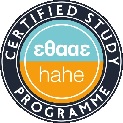Through the pandemic and into the era of Web3, AI (e.g., ChatGpt) and VR, multiple information, stimuli and new ways to perceive many life activities emerge every day. Bombarded with articles, themed radio broadcasts and podcasts and even spontaneous social conversations I can’t help but wonder “are we there, where these new and highly advance technologies will have a decisive impact on our daily lives, professional as well as private”? And if we are, how will we see VR (Virtual Reality) technology implemented in our work life?
By definition, VR is the term used to describe a computer-generated environment that someone can explore and interact with. A user is immersed in the environment and the brain is basically tricked into thinking that what someone is seeing in the virtual world is real.
Some of the greatest brands have adopted such practices bringing the wow-factor for customers, employees, students and applicants. Sectors like e-commerce, construction, real estate and event planning have begun to ride the VR wave by providing customers with the ability of a preview experience of them enjoying products or services, which often leads to augmented sales through engagement. At the same time, employees such as designer engineers may now “construct” a simulated version of a product, given the possibility to optimize it and test its functionality before even creating its solid form. Thus, sparing the company and eventually the planet, of tons of waste of a possible poor construction.
Passing to education and training, many universities, and in particular medical schools, may now provide the opportunity to students to perform simulated exercises, e.g., surgeries, by removing all together the real risk factors that could cost lives, while at the same time developing in the new generations of doctors the necessary skill sets. Scoping back to business, organizations have found interest in adopting VR as a tool to attract and engage job applicants by enhancing their desire to join their local or remote team. More specifically, companies may now provide a preview and a sense of perceptual belonging to an applicant that has joined the recruitment process. Going further than presenting a real-life work-environment, they raise interest and augment motive by projecting cases of organizational purpose fulfillment. In a few words, Marketing and Employer Branding have been heavily equipped though this tool, guiding numerous business stakeholders towards the companies applying them. Bringing the Greek market into the mix the question remains; “are we buying all these new things”?
Being part of a recruitment hub wheeled by technological transformations, my team comes from an environment very keen on digital news. But at the same time, all our focus is to be as close as possible to the client companies. Daily contact with a broad spectrum of the Greek market has formed a solid understanding of the problem of underequipped or slowly moving companies. Stuck between numerous processes, lost in cross-functional and vertical communication and most importantly budgets, we collaborate with many companies that are new to the implementation of basic tools such as ERPs, CRMs, WMSs and the much-needed digital bridges that unite these technologies. A recruitment agency like kariera.gr, has important contacts with virtually all companies in the Greek market. So, we are able to see, first-hand, the importance that companies now place on the collection and monitoring of data. This has led companies to source and recruit skilled analysts and data scientists of numerous domains in order to bring a better understanding of stakeholders’ behavior (sales, costs, turnover, applications, etc.). At the same time, a need for change or modernization has led companies to desperately grow their expertised IT workforce. But once again, most of them didn’t embrace the technological changes for advancement when they occurred; they simply followed to remain relevant and survive. Those who led the digital changes by adopting such tools and by reshaping their internal and external processes benefited from the return on their investment. Some of the ones that followed managed to regain balance and survived whilst others were vanquished along with their markets.
On a less fatalistic note, budgets, costs and organizational change are a hard reality and difficult to manage. Spending funds to introduce VR for cost cutting reasons is probable to be soon seen, even in the Greek market, especially in education and manufacturing. The potential for luxury goods/services companies to invest in tools such as VR to maximize their profit is also quite probable. But to introduce VR for recruitment processes by absorbing the cost of providing all shortlisted candidates with the necessary equipment is something that the Greek market will probably not be witnessing in the next few years. Still, the moment that a client will share future process steps including VR is a moment worth awaiting and ours to see.

Laura Logotheti
Recruitment Consultant at kariera.gr















